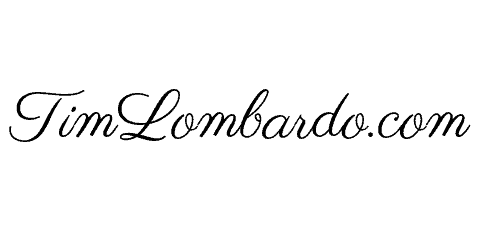What I Learned by Journaling for 30 Days
Journaling for 30 Days
I have been journaling for 30 days, and it has become a daily habit in my life. So I thought it might be beneficial to reflect on what I have learned and share it with you here. Here are my thoughts on the subject.
Starting a Journal
I remember in the old days, I would start a journal by pulling out a primary school notebook and writing in it. It was nothing fancy and not all that intentional. I would write something down and set it aside for days or even weeks at a time. I was not journaling. It was more like note-taking when I had a thought and chose to write it down.
To start a journal, you need to do the following things consistently.
- Have a journal or notebook exclusively for journaling.
- Keep the journal with you or know where it is.
- Decide to journal daily and begin to build the daily habit.
- Dedicate 10 minutes or more a day to the process.
- Get started and put it in your calendar as a daily reminder.
30-Day Writing Challenge
On the first page of your journal, write out a 30-day writing challenge to keep you accountable. If you can write in your diary for 30 days in a row, you will most likely establish a habit that will last long term. Please put it in your calendar and on your daily to-do lists until it becomes automatic.
Now let us discuss why you would want to do this and what benefits you may gain from this.
Types of Journaling
Different types of journaling accomplish other things, and you will probably dabble in many of them until you find out what matters to you. All kinds of journaling boil down to one thing, tracking progress. If you look back on any journals you have written, you will see how you have changed or not changed all that much over time.
It is beneficial to see what kind of progress you have made in a particular area. Even the first form we will cover below will reflect changes if you look closely and reflect on it.

Free Form Journaling
Free-form journaling is just what it implies. You open your journal and write about whatever is on your mind. Free-form is the idea of keeping a diary of your daily experiences or thoughts. There is value in this if you are the type who benefits from processing and thinking about experiences.
There is freedom in putting your thoughts on paper; some even claim that it helps relieve stress and produces relaxation. If it does that, I am all for it because we Americans need to manage stress levels in healthy and productive ways.
Clarity Journaling
Some like to journal to gain clarity or to help make a decision. Writing is where you write out the pros and cons of a situation and continue to think about it until you gain clarity.
Perhaps you disagree with someone, and you intentionally write out your side and their side on paper to see if they have a point. Open and honest thoughts captured on paper sometimes lift the fog from a situation, and you gain clarity in the process.
Goal Journaling
Goal journaling is powerful because it puts your goals in front of you daily! Most will write out their goals as a New Year’s resolution and wonder why they quit by February. There is power in writing out your goals daily. Grant Cardone even recommends you write them out in the morning and again at night before you go to bed.
Write out short-term goals that you intend to accomplish that day or week. Write out goals that you intend to achieve within 30, 60, or 90 days, and also write out long-term plans. Long-term would be what you will do in the next 5-10 years. Break it down in writing and keep it in front of you as a daily reminder.
Dream Journaling
What would you do if money were no object? Where would you travel, and what would you experience? What kind of house would you own, and where would it be located? What relationships would you focus on when your big dreams become a reality?
Outside-of-the-box thinking allows you to be a kid again. Children allow themselves to think that they will be Olympic athletes, doctors, cowboys, supermodels, and the list goes on. We don’t tell our kids not to believe those things, and we tell them if they want it, they need to work hard, and who knows what might happen when they grow up.
As adults, we can still dream and get excited about what could be. There are no guarantees in life, and you may not get all your dreams, but your dreams will motivate you to pursue your potential and move forward. Goals make us happy and help our attitudes. Dream big, and if you are courageous enough, go for it!
Bullet Journaling
Bullet list journaling is highlighting, ranking, and listing thoughts on subjects. You may bullet point a list of things you need to do today. You may bullet point the ten books you need to read this year. It may be a priority list that needs to be on paper.
Some find great joy and perspective in writing out bullet point lists. It is much different than free-form writing, where you are vomiting ideas out on paper. There is a place for this kind of journaling; for some, it is the only way to write.
Food Journaling
Food journaling is an example of specific journaling that is part of any particular goal or process. You may be trying to identify a food allergy you might have, or you are tracking your food for a specific diet. This kind of journaling helps keep you accountable for what you want to accomplish.
Bullet journaling is usually a short-term process. The person who has been keeping a food journal for 20 years is screaming at me.
Workout Journaling
Workout journaling is a specific journal kept to accomplish a particular goal. Journaling is significant because, again, this helps with accountability and habits. A journal helps keep you on track. You know when it is leg day and arm day in your journal.
Prayer Journaling
For those who pray, it is sometimes beneficial to keep a prayer journal. It helps capture ideas and feelings during that time. It is also fantastic to look back at the past and see how God has answered your prayers. It often reveals how God did not answer the prayer the way you thought it would be.
Size of Your Journal
If you journal throughout the day, you will probably want a small one that can travel with you in your bag or pocket. A small one is also easier to fill with words so that you can write out shorter entries. It won’t look like you did not finish in a small journal.
A prominent journal is for those that love to write. You know the paragraph writers who tell stories or explain thoughts and ideas in long written form. It would help if you had a full-size journal on your desk with a pen ready to go.
Time Spent Journaling
Time spent is totally up to you. If you are having trouble getting started, commit to 5 minutes daily when you have a lot on your mind and feel like writing takes 10-20 minutes. There are no rules here. Keep your journal and write down thoughts throughout the day if you want. When you start writing, ideas begin to flow, and you will find yourself losing track of time and writing for a while.
Find what works for you and stick with it. The only thing is that you need to make time to do it, so other things don’t get in the way. I will also say that it may not become a daily habit for you. You may find yourself picking it up every few days and writing something in it. I would say that is OK. No rule says you have to journal, and you may not find the benefits worth your valuable time.
What I Learned by Journaling
I learned that journaling helps me process my thoughts and helps clarify things. There is a therapeutic thing that happens when I slow down long enough to capture some ideas on paper. I feel more relaxed when I get it off my chest and onto the page.
It is also fun to look back at what I wrote days, weeks, and months before seeing how I have changed. I often read something I wrote that I no longer agree with.
Benefit or a Waste of Time?
So stick with this for 30 days and then stop and think. Was it a benefit or just a waste of my time? We humans are so different that I am sure folks will be on both sides of the fence. I have a friend who would instead go for a run and do his thinking while jogging. Whatever the case, I recommend adding daily habits that will help you.
Go to Amazon to see my favorite journal and pick out yours today.







